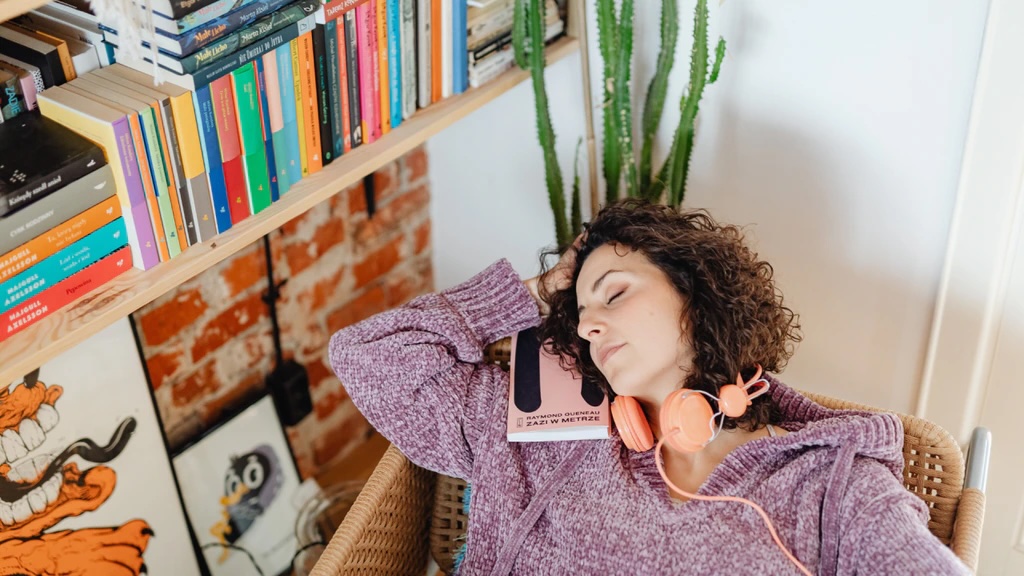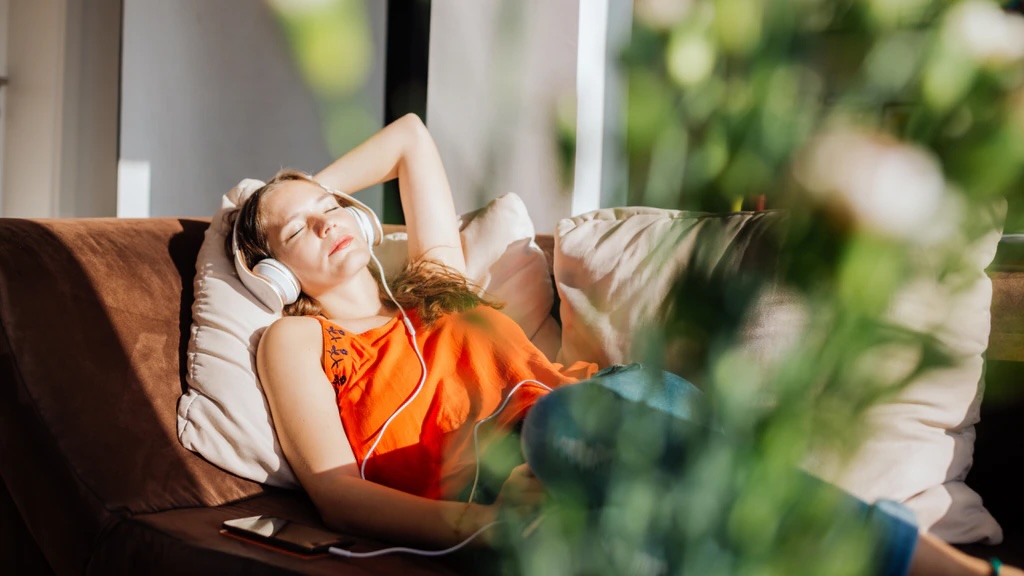
Guided meditations and sleep stories can help you sleep deeper. Image: Pexels
While background noise might seem counterproductive when it comes to falling asleep, there are countless studies that confirm tuning in to certain sounds can help you to tune out at bedtime.
Falling asleep faster, sleeping deeper and waking up less… music to your ears, right?
While this may seem like a dream come true, it can be a reality – and it doesn’t need to involve sleeping pills or other sleep aids. Rather, tap into the right tunes, and this exact experience can happen – night after night. But… which sound is best? Pink noise? White noise? A spoken sleep meditation? Silence?
Wonder no more – here, we share the best sounds for sleep, so you can rest easier than ever.
What are the best sounds to fall asleep to?
White noise
White noise, such as a humming air-con or radio static, packs a punch when it comes to sleep. As noted in a recent clinical trial, 80 per cent of infants listening to white noise fell asleep within five minutes, compared to only 25 per cent of those who were not. By including all audible frequencies at an equal distribution, white noise shields background noise, which can otherwise extend sleep latency (or the time it takes to fall asleep).
Secondly, white noise can slow brainwaves, helping you feel more relaxed at bedtime and sleep deeper. If you’ve noticed you sleep better with a fan or air-con, this could be why.
Pink noise
Akin to white noise, pink noise (such as steady rain or rustling leaves) masks background noise; but unlike white noise, there is a skew towards lower frequencies producing deeper sound, meaning it’s renowned to be more soothing.
Evidently, this is hugely effective. One study found pink noise to reduce the time taken to fall asleep by 58 per cent – from 23 minutes to 13.5 minutes and another research paper found it to improve sleep stability (read: less waking up) for both nighttime sleep and naps – making it ideal for adults, children and infants alike.
Instead of using your phone to listen to pink noise, seek out a device such as Euky Bear’s Sweet Dreams Sleep Aid – it plays calming pink noise, and lullabies, and has a sleep-friendly red night light too, all important for an ideal bedtime routine.

White noise can slow brainwaves, helping you feel more relaxed. Image: Getty
Guided meditations and sleep stories
Though not technically music, no list of recommended sounds for sleep is complete without mentioning meditation and sleep stories.
Bought into the spotlight by apps such as Calm, sleep stories enhance mindfulness with breath-focused meditations and experiential awareness, disrupting the cycle of rumination, which may otherwise keep you up at night. In fact, a 2021 study found 90 per cent of users fall asleep easier, 70 per cent woke up less, and 79 per cent experienced more restful sleep.
The researchers also found a correlation between the frequency of listening and improvements in sleep too.
Silence
Silence is golden, isn’t it? A 2016 study found those in an acoustically isolated or dead silent room spent 30 minutes longer in slow wave sleep and woke up approximately 25 per cent less, compared to nights sleeping at home, or a sleep lab.
And while we may not be able to sleep in an acoustically isolated room each night, you can pop on a pair of sleeping earplugs, which will have a similar effect.
From different colours of noise to flat silence, you now have a few more tools in your sleep toolkit. Try them all and see what resonates the most – your best night’s sleep is just around the corner.
Originally featured on Body and Soul
+ show Comments
- Hide Comments
add a comment